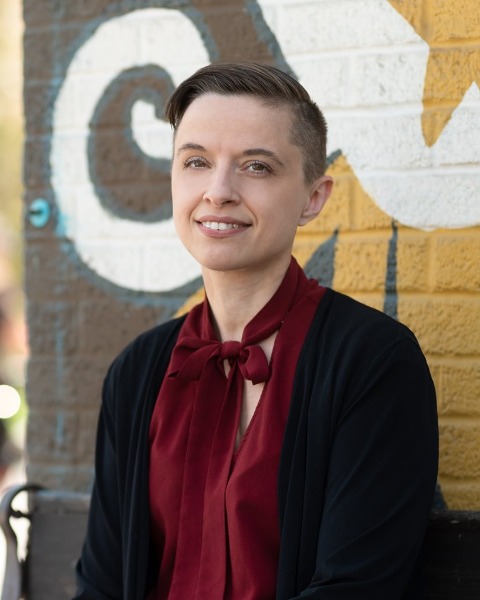Back
Immigrants, Refugees, and Displaced Populations
Self-Esteem and Confronting Bias
"They Said I Had to Stay at Home”: Confronting Gender Bias in Refugee Resettlement
Friday, November 11, 2022
7:45 AM – 8:15 AM
Location: Manhattan

Sarah Richards-Desai, MSW
PhD Candidate
University of Buffalo School of Social Work
Buffalo, New York, United States
Author and Presenter(s)
Overview: Refugee women describe complex relationships between gender role ideology, their development of human capital, social networks, and economic integration. Data from this grounded theory qualitative study also reveal the roles of language resources at individual and community levels; refugee women’s human capital development and gendered access to capabilities development.Proposal text: Refugees' economic participation is a mandated aspect of the U.S. refugee resettlement policy (U. S. Department of State, 2015). The financial status of refugee women is substantially challenged by limited access to employment, childcare, transportation, and other resources in a resettlement context (Deacon & Sullivan, 2009). As women and largely people of color, refugee women experience discrimination and are at risk of being in poverty. The economic wellbeing of refugee women may be related to their limited access to social networks and the resources embedded in these networks (Lin, 1999). Economic structures in the US follow gendered norms and constrain choice (Agenjo‐Calderón & Gálvez‐Muñoz, 2019) and refugee women confront labor market bias (Koyama, 2014; Vijaya, 2020). Centering refugee women’s wishes and capabilities builds social workers’ responsiveness and advocacy efforts when supporting integration outcomes (Nussbaum, 2000; Nussbaum & Sen, 1993) such as language acquisition and other human capital (Riggs et al, 2012; Sharifian et al, 2021).
Methods: This study used grounded theory qualitative methodology to learn more about how refugee women are accessing opportunities, navigating the labor market, and what role language and ethnic communities play in how they develop human capital and social capital in resettlement.
Sampling: The sample consisted of a purposive sample of refugee women currently living in a northeastern US metropolitan area. A final sample of 12 women (over age 18 years and who spoke English, Arabic, Burmese, or Kiswahili) was included in face-to-face and remote one-on-one interviews. When needed, language interpreters were present. Interviews were recorded and transcribed. Participants were recruited from a refugee resettlement agency, via word-of-mouth, referrals by community leaders, and among refugee women’s groups.
Data analysis: The qualitative interview data were transcribed and analyzed using iterative methods. Initial coding was performed independently, and then codes were compared for inter-rater reliability. Initial and axial codes were clustered to identify emerging themes and patterns in the data.
Findings: Core themes were analyzed to develop a model of refugee women’s social networks, language ability and other forms of human capital, perception of both internal and external pre-and-post-resettlement gender norms, and economic participation in resettlement, demonstrating relationships between elements of their experiences. Three emergent themes were “systemic bias limits opportunities”; “limited preparation for integration”, and “unpaid/unseen labor” which were then explored to understand how women’s encounters with institutions of opportunity were shaped by bias in multiple settings. Cultural and economic circumstances positioned women as caregivers both in home and resettlement contexts, though women also described “getting what they want” and fulfilling human capital objectives. Many women also described remnants of trauma and gendered premigration struggles, and reported shared resilience and instances of agency, and some women found connections within their language and ethnic groups that facilitated employment and economic wellbeing for them and their families.
Methods: This study used grounded theory qualitative methodology to learn more about how refugee women are accessing opportunities, navigating the labor market, and what role language and ethnic communities play in how they develop human capital and social capital in resettlement.
Sampling: The sample consisted of a purposive sample of refugee women currently living in a northeastern US metropolitan area. A final sample of 12 women (over age 18 years and who spoke English, Arabic, Burmese, or Kiswahili) was included in face-to-face and remote one-on-one interviews. When needed, language interpreters were present. Interviews were recorded and transcribed. Participants were recruited from a refugee resettlement agency, via word-of-mouth, referrals by community leaders, and among refugee women’s groups.
Data analysis: The qualitative interview data were transcribed and analyzed using iterative methods. Initial coding was performed independently, and then codes were compared for inter-rater reliability. Initial and axial codes were clustered to identify emerging themes and patterns in the data.
Findings: Core themes were analyzed to develop a model of refugee women’s social networks, language ability and other forms of human capital, perception of both internal and external pre-and-post-resettlement gender norms, and economic participation in resettlement, demonstrating relationships between elements of their experiences. Three emergent themes were “systemic bias limits opportunities”; “limited preparation for integration”, and “unpaid/unseen labor” which were then explored to understand how women’s encounters with institutions of opportunity were shaped by bias in multiple settings. Cultural and economic circumstances positioned women as caregivers both in home and resettlement contexts, though women also described “getting what they want” and fulfilling human capital objectives. Many women also described remnants of trauma and gendered premigration struggles, and reported shared resilience and instances of agency, and some women found connections within their language and ethnic groups that facilitated employment and economic wellbeing for them and their families.
Learning Objectives:
- Upon completion, the participant will be able to identify elements of social capital and critical feminist theories and apply them to cases through qualitative study findings as provided by the presenter
- Upon completion, the participant will be able to describe the capabilities approach as it applies to refugee women's resettlement experiences and social networks
- Upon completion, the participant will be able to perform a reflective exercise designed to engage cultural humility and use a human rights-based approach to engagement with refugee women
